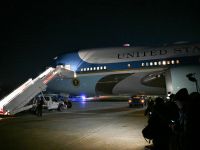The imprisonment and alleged assault of a group of Sudanese artists has revived concern about freedom of expression and human rights in the transitioning democracy, which activists warn is still under the thumb of the former regime’s “militant Islamist ideology.”
In August, Sudanese security forces arrested a group of artists taking part in a theatre workshop in Khartoum’s Al-Zuhour neighbourhood after conservative neighbours complained and allegedly threw stones at the participants. While in police custody, some of the artists were allegedly beaten by guards, and six were eventually fined and sentenced to two months in jail.
While the artists’ convictions were eventually overturned by a higher court, they say the traumatic episode is indicative of a justice system that has failed to keep pace with the country’s democratic reforms and remains under the influence of the old guard of ousted Islamist leader Omar al-Bahsir.
“While these rules exist, we will never have a freedom of expression,” said Sudanese film director Hajooj Kuka, one of those arrested and allegedly beaten by security forces.
Kuka’s colleague at the event, artist Duaa Tarig, said he was hit so severely by police that he lost consciousness, prompting his fellow artists to chant anti-government slogans. He said Bashir’s Islamist base uses such incidents to instill fear and remind the public they retain power.
Mohammed Osman, a Sudan researcher at Human Rights Watch, was one of many rights defenders to condemn the crackdown on artists.
“The circumstances of the case including the charges combined with the police abuse and the sentences against the artists highlight the continuation of infringement on basic rights,” Osman said.
The Strategic Initiative for Women in the Horn of Africa (SIHA), a rights group, added in a statement: “This case was handled in a biased and politicised environment that lacked justice and due diligence.”
“It enabled citizens with certain ideologies to attack artists and ally themselves with law enforcement to criminalise the artists, without facing accountability for the assaults they committed.”
The detained artists also received broad support from the international film industry, where Kuka’s work is well known .
A member of the film academy that awards the Oscars, Kuka is the director of the prize-winning documentary film “Beats of the Antonov,” which weaves together the sounds of bombardment in the Nuba Mountains with resident’s use of music to deal with the ongoing war. His previous works have focused on the plight of displaced people in the country’s war-torn south.
Despite his arrest, Kuka says he plans to stay in the capital to pursue his artistic vision and expressed hope that Sudan’s nascent democracy is moving in the right direction.
“I can work, I can live here,” he said. “Although we got attacked and things are not perfect, it is definitely way, way, way better.”
Sudan’s transitional government, which replaced Bashir and is to hold power until elections in 2022, has taken some steps to eliminate restrictive laws from the Bashir era. In November, it overturned the Public Order Act, a Shariah-inspired law that criminalised a wide range of individual behaviour including revealing clothing and drinking alcohol. It also passed a set of sweeping amendments to the country’s criminal code, including one that criminalised the widespread practice of female genital mutilation, and abolished the death penalty for people under 18.
However, advocates complain democratic reforms face pushback from an alliance of Islamist forces and longtime security officials that continue to wield power.
Experts say Sudan’s path forward will be fraught with challenges and require a continued struggle to anchor freedoms and democracy.
This article has been adapted from its original source.







